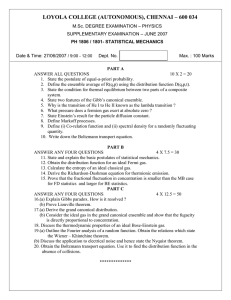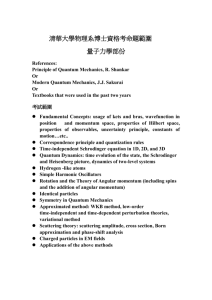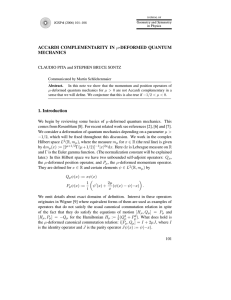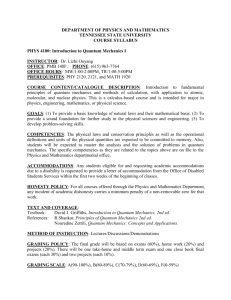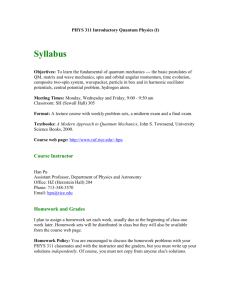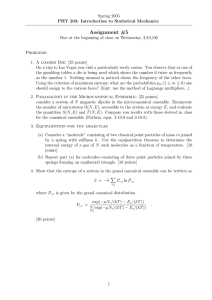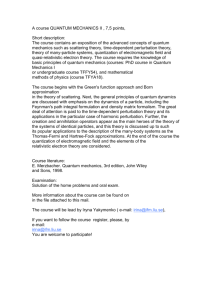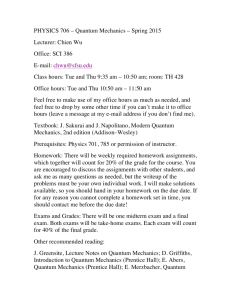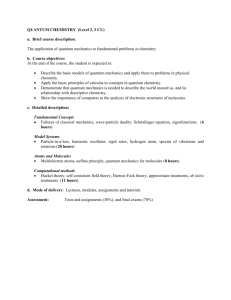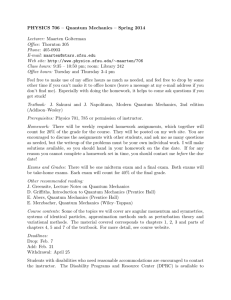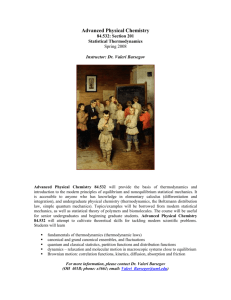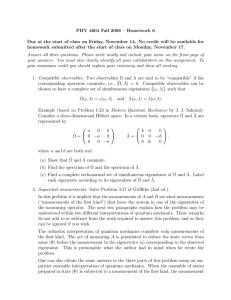Statistical Mechanics
advertisement
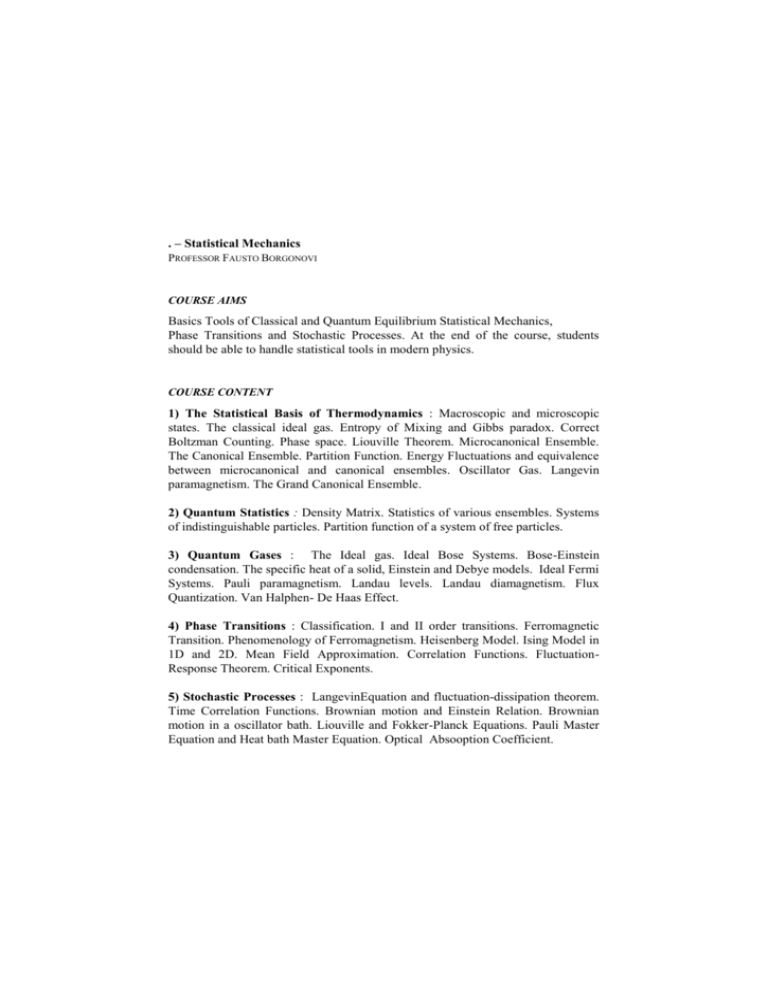
. – Statistical Mechanics PROFESSOR FAUSTO BORGONOVI COURSE AIMS Basics Tools of Classical and Quantum Equilibrium Statistical Mechanics, Phase Transitions and Stochastic Processes. At the end of the course, students should be able to handle statistical tools in modern physics. COURSE CONTENT 1) The Statistical Basis of Thermodynamics : Macroscopic and microscopic states. The classical ideal gas. Entropy of Mixing and Gibbs paradox. Correct Boltzman Counting. Phase space. Liouville Theorem. Microcanonical Ensemble. The Canonical Ensemble. Partition Function. Energy Fluctuations and equivalence between microcanonical and canonical ensembles. Oscillator Gas. Langevin paramagnetism. The Grand Canonical Ensemble. 2) Quantum Statistics : Density Matrix. Statistics of various ensembles. Systems of indistinguishable particles. Partition function of a system of free particles. 3) Quantum Gases : The Ideal gas. Ideal Bose Systems. Bose-Einstein condensation. The specific heat of a solid, Einstein and Debye models. Ideal Fermi Systems. Pauli paramagnetism. Landau levels. Landau diamagnetism. Flux Quantization. Van Halphen- De Haas Effect. 4) Phase Transitions : Classification. I and II order transitions. Ferromagnetic Transition. Phenomenology of Ferromagnetism. Heisenberg Model. Ising Model in 1D and 2D. Mean Field Approximation. Correlation Functions. FluctuationResponse Theorem. Critical Exponents. 5) Stochastic Processes : LangevinEquation and fluctuation-dissipation theorem. Time Correlation Functions. Brownian motion and Einstein Relation. Brownian motion in a oscillator bath. Liouville and Fokker-Planck Equations. Pauli Master Equation and Heat bath Master Equation. Optical Absooption Coefficient. READING LIST 1. R.K.PATHRIA, Statistical Mechanics, Elsevier Science (1996) 2. K. HUANG, Statistical Mechanics, J. Wiley & sons, USA (1987). 3. J.J.BINNEY - N.J.DOWRICK – A.J.FISHER AND M.E.J.NEWMAN, The Theory of Critical Phenomena, Oxford Science Publications, Oxford (1992). 4. R.ZWANZIG, Non equilibrium Statistical Mechanics, Oxford Univ. Press (2001) TEACHING METHOD Lectures. Homework exercises. ASSESSMENT METHOD Written and oral examinations. NOTES Students are required to have a good knowledge of Thermodynamics, Classical and Quantum Mechanics. Prof. Borgonovi receives students after lectures. Students may also write to: fausto.borgonovi@unicatt.it or fborgonovi@gmail.com
